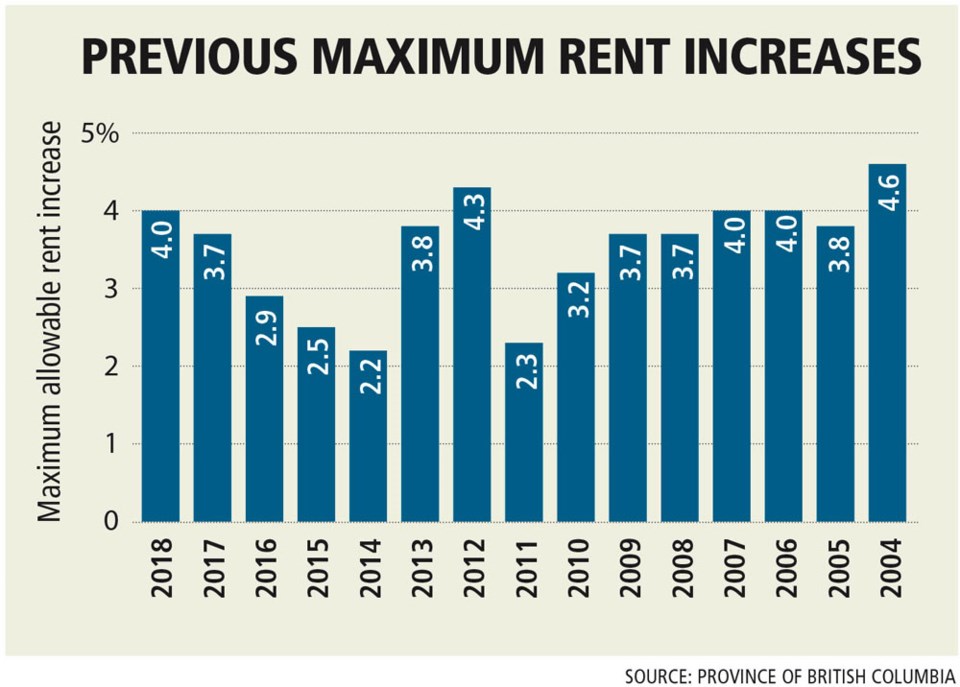B.C. renters are bracing for the highest rent increase in more than a decade, with landlords allowed to raise rents by up to 4.5 per cent next year.
That’s the largest allowable rent increase since 2004, when the maximum increase was 4.6 per cent. The B.C. Residential Tenancy Branch set the maximum increase at 4.0 per cent for 2018.
If the maximum increase were applied, someone whose rent was $1,000 a month would see it go up $45 a month, a total of $540 a year.
B.C. landlords are able to raise rent for their tenants once in a 12-month period. The B.C. government sets the allowable increase at the rate of inflation — calculated at 2.5 per cent — plus two per cent.
The cap on rent increases applies only to a landlord’s existing tenants. There is no limit on the increase if a new tenant moves into a suite.
The Together Against Poverty Society, a Victoria-based advocacy group, is concerned that landlords can increase rents without making improvements to their properties.
“So what we see, landlords are cumulatively able to increase rent each year without being forced to better the conditions of the unit to the renter,” said Yuka Kurokawa, a tenant legal advocate for TAPS.
Kurokawa said low-income renters are already struggling to find affordable housing and keep up with rising costs in Victoria, and she fears the rent hike will “perpetuate the issue of affordability in our city.”
A provincial rental task force spent the summer touring B.C. speaking to renters, landlords and others with the goal of modernizing B.C.’s tenancy laws.
Kurokawa hopes that the task force, headed by Vancouver-West End MLA Spencer Chandra Herbert, will act on feedback that the rent increase is too high.
Ontario’s maximum rent increase for 2019, for example, is 1.8 per cent.
“It’s a precarious situation out there for renters right now and we’re hoping the government will address the allowable rent increase,” Kurokawa said.
The task force is expected to release its recommendations this fall.



